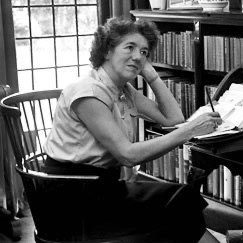I mentioned last week, as a prelude as it were to my writing about two Professor Branestawm books, that I would be brief, given the number of books I read in that fallow period when I was looking after the puppies, and also the slightness of several of them. This is even more true of the books I will glance at today.
One was a Richmal Crompton who is rightly much loved for her William books. But she also wrote about a younger boy called Jimmy, who also gets into preposterous scrapes, and though he is not at all in the same league as William, he too can be very funny. His reasoning is even more preposterous at times than William’s, as when he decides that a man who runs for his train must be a criminal, from which it is a short step to deducing that he is a potential murderer.
So they build a dummy of the person they think he will murder – a melodramatic novelist who has declared into a Dictaphone a fear of being killed – but that then deters a burglar who had been told the house would be empty. Roars of laughter, when Jimmy tells the policeman who has apprehended the lurking man that he has the wrong person, from the supposed murderer and his victim, to e has a strange sense of logic, that sometimes rivals William’s, enough to deter Jimmy from playing detective again.
Jimmy has a sidekick called Bobby who does what he is told, and an older brother with two good friends, who tries to keep him at arm’s length, though he generally fails to do this. But even more entertaining than the exploits are the predilections of his friends, in particular Charlie, who proposes a museum, ‘A living monument to a bygone civilization’ after he had attended a lecture on archaeology. The debate on whether Julius Caesar had an umbrella or an ‘attashky kase’ is almost worthy of William.
Jimmy Again was I found a prizebook, for Lower IV A, so I would have been 12 when I acquired it. Belonging to an earlier age was a book I have no recollection of whatsoever, Mr Pinkwhistle Interferes, by Enid Blyton, in a series intended for young children, before they moved on to her adventure books.





Mr Pinkwhistle is a little man, ‘half a brownie’, who can make himself invisible, so he has no problem dealing with bullies of all ages who make children, or even animals, miserable. The stories are much of a muchness, and I don’t suppose it would have been of any great moment had I not found or read the book. But since I have no recollection of it, I wonder not only how it got into our library – where it has been meticulously catalogued, at the time my father got this done – but also how it escaped being given away, for after all of us had gone to university my mother gave away all the books we had for young children, to a connection who had suddenly lost her mother.
And there were some lovely touches as when Mr Pinkwhistle arranged a party for two children who were ill and could not have their friends round. Instead he brought a host of animals, who provided enormous fun to the children, in their nursery, with games and presents for everyone from a bran tub, and even a magic show.
